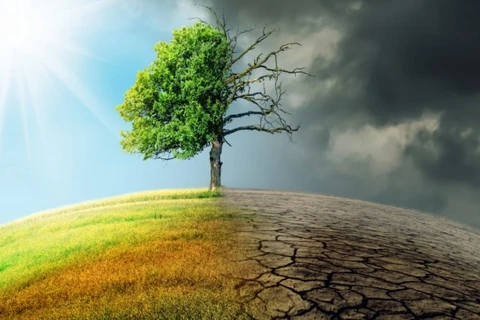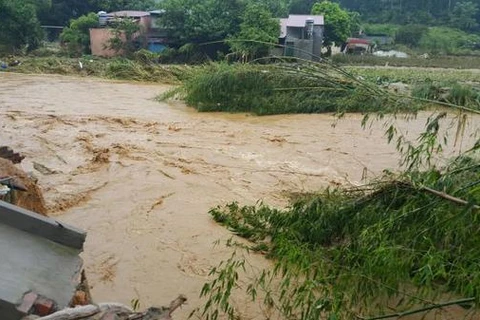Hanoi (VNA) – It is critical to have communication protocols that ensures every community member’s access to early climate forecast and warning, said Nguyen Van Tien, Deputy Director of the General Department of the Vietnam Disaster Management Authority (VDMA), on October 13.
Since a group of population may have limited access to early forecast and early warning reports for many reasons, it is very risky for civilians whenever a natural disaster occurs, Tien told the National Urban Forum “Building Urban Resilience Through Early Warning and Early Action” in Hanoi.
Another important thing is to guarantee the funding availability to activate early actions at a short notice, he added.
Given that Vietnam is among the five countries most vulnerable to natural disasters and climate change, he continued, the Vietnamese Government last year adopted a national strategy for natural disaster prevention and control to 2030, with a vision towards 2050, which includes contents related to urban resilience against natural disasters, such as planning and construction control to minimise impacts of natural disasters, particularly flooding.
Nguyen Huynh Quang, from the VDMA, said disaster risk information is of significance to authorities and people as it enables proactive response to natural disasters, a better understanding of related risks and a more responsible approach in issuing disaster policies.
The forum was hosted by VDMA in collaboration with the Asian Disaster Preparedness Centre (ADPC) and the Norwegian Agency for Development Cooperation (NORAD) in response to the International Day for Disaster Risk Reduction and the ASEAN Day for Disaster Management (October 13).
It was part of the project “Urban Resilience to Climate Extremes in Southeast Asia” (URCE), aiming to build resilience of urban communities and systems to climate extremes by better understanding current and emerging risks./.






















